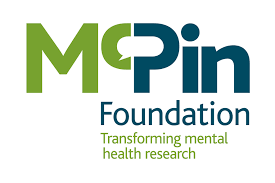In all honesty, I didn’t realize what I was getting myself into.
If I look at most of my life, I rarely seem to know much of anything. My journey to accepting and owning my lived experience identity began with trepidation, and as time went on, it turned into something altogether unrecognizable. I’ll let you decide what that might mean. You will, no matter what I have to say about it anyway.
When I think of how I started, I think of an excerpt from my working manuscript, Speaking of Intent:
“I sat for hours writing my first speech. It wasn’t the words I was struggling with, but my thoughts. I was terrified of sharing. Who would be in the room? How would they look at me? What would they think? These imagined strangers glaring at me stoically. Thinking they could do better. It seemed all I had to offer was my “story.”
I mean, that’s what was asked of me, to tell my story. I don’t think I had ever considered my experiences a story before. When I think of the word story, I imagine a heroic journey with pitfalls and suspense. I see a hero standing tall at the end, and everyone is cheering them on.
I didn’t walk tall while others cheered me on.
Few knew what I had experienced. Few knew how I became shattered and silent. When they had learned of “my story,” they often backed away fearfully. Leaving me feeling contagious and anything but chivalrous like a hero. I wasn’t sure what part of me merited the 10 minutes allotted to speak, but I knew it wasn’t enough to brand me forever a champion.
I stayed up late, deleting, rewording, and questioning whether or not I could or, better yet, should share this story.
My story, but also not just my story. There is so much intertwined between the grey of what happened to me and all the others who were also in the bucket of loss and confusion. I couldn’t bear the thought of what they might feel about me. That was a hill I couldn’t stumble down at the moment.
I tried to focus on the words but found my thoughts drifting everywhere but where I needed them. I found myself back in high school when I first took a chance and spoke in front of anyone. I had done terribly. I hadn’t thought about that day in a long time. Why didn’t this memory come to mind when I agreed to speak?
It was a mock trial. I had the brilliant idea to play the part of the defense attorney in an unwinnable Lemon Law case. I spent weeks studying, reviewing the law, trying to find loopholes, and practicing what I would say, but in the end, I knew it was pointless. I prayed I could talk my way into a win, only to find I could barely eke out any comprehensible words.
The second I stood up, all the blood rushed to my head, and I instantly felt dizzy. I stood there wobbly, doing everything I could to keep myself from tumbling over in front of everyone. I couldn’t find the words I had rehearsed from the depths of my blurry brain. Even worse, all my peers were staring at me. Why in the world did I want to stand in front of anyone? I didn’t realize I would be the center of attention in my junior year of high school.
I lost.
It was more than embarrassing. I wanted to disappear.
The words didn’t make sense. I was begging the clock to chime that this torturous trial was over. Tick, tick, tick, situated in the throbbing of my heart from the middle of my throat. Then, I realized I wasn’t made to be in the public eye. I wasn’t meant to share the words that made up the catacombs of me.
Oh, well. I shook the nauseating memory off and returned to the present. Damn, what am I doing? How do I get myself into these messes? How did I end up sitting here writing a speech about myself? None of these people have any idea who I am. They most definitely don’t care, either. My story does not matter. My mind groped for an answer to why I found myself on the verge of vomiting. I volunteered for this myself, of course.
The rather annoying side of my conscience chimed in, too late to back out now.
We’ve made flyers and told everyone in town. You can’t go back on your word. I thought sarcastically, “Thanks for teaching me responsibility and the value of sticking to your, Papa. Stupid me, always doing too much, and I can’t blame anybody else.”
(Excerpt from Speaking of Intent. Release date: Fall 2026)
The journey can get lost when I overlook these critical moments where I work through my innermost thoughts. The critic is telling me that I cannot, should not, and that no one cares what I have to say. That critic is a constant challenge. One made from every enemy I’ve ever known or briefly imagined. The critic that swells in the quiet of the evening and works harder to steal my motivation than I have the energy to fight.
The internal challenge of navigating myself while working in a space that seems foundationless is constant. There is a very real fear that others will misunderstand my motives and see me as one of those. You know the ones. The ones who have lost their way no longer hear the voices of the most vulnerable. It is the fear that I will be seen as self-serving even when I have given more of myself than I could ever hope to communicate. Worse than either of those is the fear that I will be genuinely seen and rejected as I am. Not by one, but by all whom I have fought so hard for because they had been my only community. So many of us know the desire to belong and be accepted. Don’t we?
I will always be one of my biggest challenges.
Maybe in part because of my lived experiences. Perhaps it was always in me to challenge myself. I am not sure I will ever know why. Then there are all the external challenges. Oh, how we complicate this human existence.
Words.
Simple, powerful, and ever-changing. We use them every day but don’t always care to understand how they shape futures or limit the present. Evolution in the field has been slow-going for some time. Yet, when growth happens, it can feel as though it is a threat. Language and terminology are some of the best examples of how we perpetuate challenge.
From demonic possession to the commission of crimes or sins, to crazy or insane, to mentally ill, to mental health. One to two words, nothing more. Yet, how many of these words have shoved people into limited identities? What other words could offer the opportunity to be more? As a field, we know the importance of evolving our language, yet within our field, we seemingly cling to words that were once acceptable but feel dismally clouded today. I cannot know what terms we might need in ten years, but I know that my personal growth depends on my ability to critically examine my ability to adapt to what is required.
The interconnectedness of words and stigma won’t surprise many of you if any at all. A challenge I commonly experience when it comes to both is examining which of my identities is being stigmatized. I struggle with the time and energy I dedicate to trying to understand more than I wish.
My internal monologue often happens like this:
‘Oh, this is discrimination/exclusion.
No, maybe I’m imagining it. I don’t want to assume. Maybe there’s something else happening that I’m unaware of and can’t know.’
After the third (or more) time of it happening.
‘Yes, this is occurring, but why? Is it because I lead with my lived experience? Is it because they think less of me as a person? Maybe it’s because I’m Asian-American? No, no. That’s not what this is. You’re imagining this.’
‘Not again. How can I address this issue without making the other feel threatened? Maybe I can show them that I appreciate them. I will keep making an effort to be seen as valuable that will help. I don’t have to say anything.’
‘I hope this is only happening to me. I hope no one else is being silenced or shamed by this policy or practice. I need to find out. How can I help them?’
‘I’m so tired of this.’
These challenges that start small, often with simple words, become embedded into our everyday. They built our workspaces and practices. They reinforced the confidence from lessening others you don’t understand but haven’t taken the time to speak to or meet. These, soul-splicing, time-consuming, never-ending “learning opportunity” challenges are the ones that beat passion back and keep many of us from pushing change forward. We know them well, but they don’t know us at all.
The external challenges amplify the internal ones. I can’t speak to which wields more power for everyone, but I can say the giant within me likes to eat uncertainty, which is always on the menu in my mind.
All this talk of challenge might make you wonder why you keep doing this.
Years ago, I hosted and facilitated a youth training at one of the most beautiful training locations I’ve ever seen. The kids were at a summer camp. Many had never dreamed of attending a summer camp because it simply wasn’t a financial option. I was standing off to the side with a few school counselors who were chaperoning the students. I started speaking about the training with one of them and during our conversation he said something that I’ve referenced often, “real recognizes real.”
In other words, authentic and genuine people see each other. They feel an instant connection. I think this field is filled with all kinds of people, but the space of lived experience is concentrated with those who operate from their truth. Those of us who crave others like ourselves are everywhere in this work. Real not only recognizes real, but it also requires real. We need one another to remain empowered and energized.
That five-minute chat with another person, where they share a profound truth, stays with you.
I find my mind slips from memory to memory. The moments that may have been meaningless to others meant something deeply rewarding—sitting on steps, waiting for a car in front of a hotel, being a shoulder in a side room at a conference. I have experienced countless connections because of the work I do. These connections became a part of who I am. When I champion, it isn’t just for that ten-year-old little girl I once was. I am advocating for every person I have ever seen. Every truth I have ever been told is being shared through my work, in my way.
Could I have connected deeply with others if I didn’t do this work? Of course. It would be naive to think we can’t bond at any time. But I could never have created as many connections as I have had. I not only worked in this space but proudly shared my experiences while doing so.
Lived experience creates an immediate sense of trust and rapport. It takes two strangers from awkwardly stumbling through the dreaded small talk to something life-altering in an instant.
Even when you leave the other, that intimacy stays with you. Their story, hope, and pain become a part of you. Your heart remembers them. They are etched into your being. In my opinion, there is no greater reward than learning about and from others who are authentically themselves. Every person has a million stories, billions of thoughts, and countless opportunities to find yourself in a new way. Any person’s experience can shed insight into how the world does and could work.
This work is not easy. Nothing new and needed ever is.
If you’re reading this and longing for some piece of my story to reflect your journey, go for it. Know that others will probably misunderstand you. Some may sadly assume the worst of you like they have me. Still, more will see you and want nothing more than to create a unique connection to you. We can all feel isolated, insecure, or disempowered while pushing for inclusion. Be intentional about developing a network with others who lead from their lived experience. Carve out spaces, times, and opportunities to find yourself among those you admire. Learn from them, not just about them. Listen to their wisdom, their pains, but most importantly, how they found themselves while working toward their version of success.
Your success will always be your own, but building it is much more rewarding when you can look beside yourself and find an ally smiling back at you. Leading from your lived experience is possible. Together, we can realize the future we all deserve.




